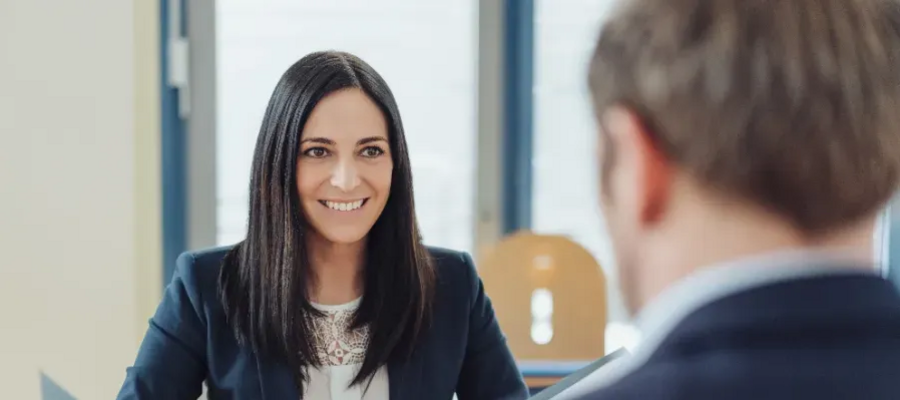When it comes to job interviews, the smallest things can make the biggest difference when employers are choosing a candidate. It’s not just about your skillset and achievements but how you present yourself to employers. For every available job role there are several candidates in consideration, all similarly experienced and suited for the role on paper, which means making a good impression in person is vital. Here are our tips for interview preparation:
Body language
Prepare to be assessed from the moment you walk into the room. Even if you don’t feel confident, act like it: greet everyone there, introduce yourself (even if they know who you are), make eye contact as you speak and offer a firm handshake. Typically, interviewers will ask if you’d like anything to drink – accept a glass of water. If you feel overwhelmed or nervous at any point, it’s the perfect excuse to pause, take a sip and collect your thoughts.
Likewise, don’t fidget or slouch. Sitting upright will make you look more engaged. Good posture will similarly help your focus and make it easier for you to answer questions effectively. Plant your feet firmly on the floor if faced with the temptation to shuffle, and place your hands, folded, on the table in front of you.
Looking and acting engaged will let the interviewers know they have your undivided attention.
Prep once, prep twice
Preparation is key, and not just the type that involves company research and poring over practice questions. How you look and dress is important, too. If in doubt, wear a suit: try it on beforehand to make sure it fits properly. Equally, tidying up your nails and styling your hair lends itself well to a professional appearance. Small efforts like these make a big impression. If employers are choosing between a well-dressed candidate and one who shows up with buttons missing from their shirt, it’s clear which candidate has the better odds.
Our charitable partner Smart Works offers free interview clothing and coaching to female job seekers in Newcastle.
Further preparations include turning off your phone to avoid unwanted interruptions. All technology should be accounted for, including smart watches. To be completely free from distraction, place them in your bag.
You should also remember to pack your CV and a notepad and pen. You might not need them but having them readily available is useful. If you’d like to ask the interviewer questions afterwards – which you should always be prepared to do – write them down ahead of time. This will not only show your enthusiasm but remind you of talking points, which is one of the key tips for interview preparation.
Expect the unexpected
Before your interview research the company, practice talking points and consider how your qualifications meet the role requirements. Don’t rehearse answers as this will come across as stiff and robotic in the interview. While you should dedicate time to figuring out what you want to say, it’s better to remember bullet points than it is to recite answers word-for-word. That way, if an interviewer phrases a question in a way you don’t expect, you won’t panic and recall information out of context.
Listen to the interviewer and adapt your answers accordingly. If you’re struggling to answer a question, start by stopping: take a moment to breathe and think. Take a sip of water. It’s better to pause than to rush into an answer.
The last first impression
The interview has come to a close, you’ve kept your composure throughout and answered a marathon of questions to the best of your ability. You’re about to leave and pat yourself on the back for getting through the experience. Before doing so, thank the interviewers for their time and shake their hands one final time. Ask when you can expect to hear back and volunteer flexibility if they need to get in touch.
Retain the same level of energy throughout the process and leave with a positive attitude, no matter how you feel the interview went overall. The ability to endure a stressful situation is valuable, as is keeping calm under pressure; these are traits an interviewer will look favourably upon.
Finally...
These tips for interview preparation will make the world of difference to an interviewer who is not just looking at your skills and achievements on paper but assessing your personality and judging whether you’d be the right fit for the team. Positive body language, thoughtful answers and visible engagement are critical criteria for an employer looking for the full package.


